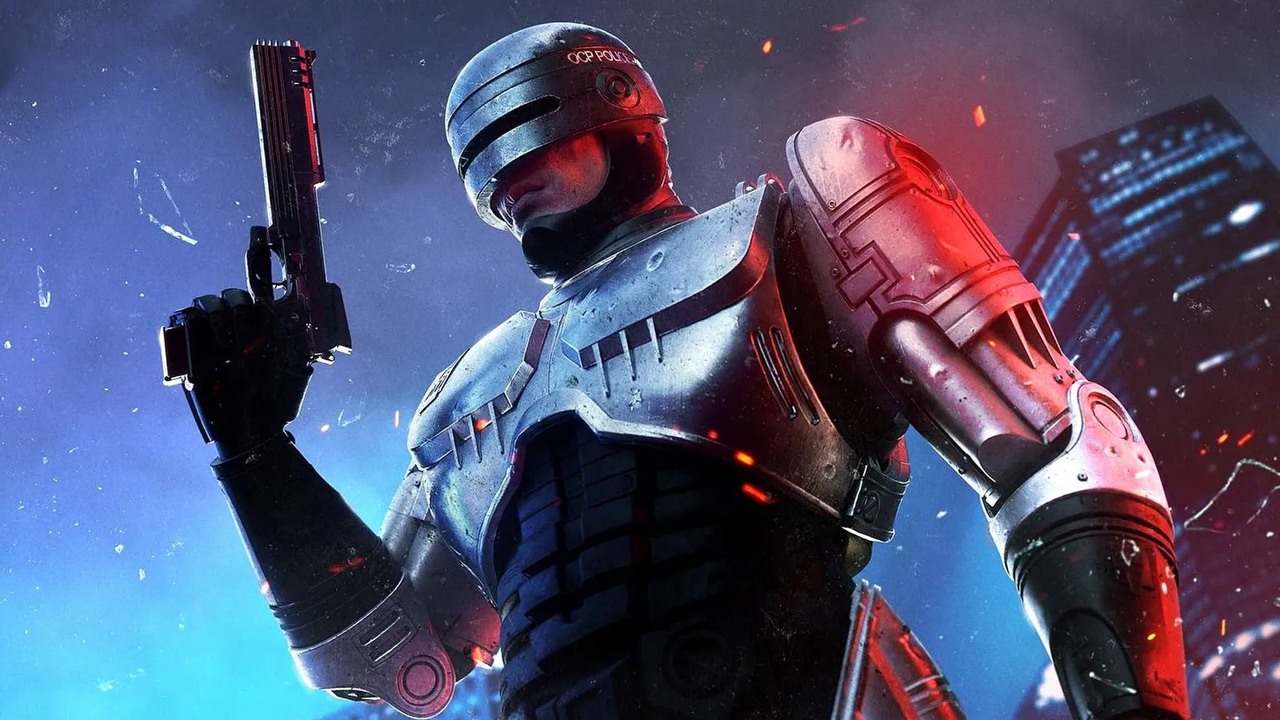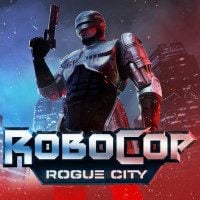'There's Too Many Games Right Now;' Nacon CEO on Modern Industry Problems
People from Nacon, the publisher of RoboCop: Rogue City, among others, talked about what they think is the biggest problem in the industry right now and how they are dealing with it.
2

Last year's RoboCop: Rogue City, an FPS based on the movie series that was popular years ago, turned out to be a very successful game - both in terms of quality and sales results. Fans of the game may be interested in gamesindustry.biz interviewwith Benoit Clerc's, president of Nacon, the publisher of RoboCop: Rogue City.
There are too many games on the market.
The conversation concerned the industry's recent problems, including, above all, mass layoffs. Nacon believes that the reason is, among other things, the market saturation. As Benoit Clerc stated:
There are currently too many games on the market. Today we see the results of investments made during the pandemic - the market was bursting at the seams then, and every game was making a lot of money, so a lot of money was invested. Two or three years have passed since that moment - the games we see on the market now were financed during those abundant times and currently there are simply too many of them for customers to be able to play them all.
- Benoit Clerc notes that some days as much as 50-60 new games debut on Steam and many of them struggle to get the attention of players. Games that no one recognizes and that had no real marketing campaign often go on sale.
- According to Nacon;s representatives, the key to success is to ensure that every game released by this company has a strong market position. The perfect example is RoboCop: Rogue City. This title combined a recognizable brand with high quality.
The key to success? Aiming at specific players and no bloating budgets
Nacon is a medium-sized publisher that cannot directly compete with the giants of the industry. The company is therefore trying to reach niches that are not covered by AAA hits. This publisher can't afford to spend 200 million dollars on marketing, so they build their projects based on the already existing passions of the players.
- In this way, the WRC and Cricket series target fans of these sports, and Ravenswatch was designed specifically for fans of games with roguelike elements. The key is for each position in the company's catalog to be directed at specific recipients, rather than trying to appeal to all possible players, which often results in it not really appealing to anyone.
- At the same time, while targeting niches, Nacon makes sure to appropriately match budgets to the sizes of potential audience groups and competition in a given category. Clerc explains that it would not be a good idea for his company to release several projects with card game elements right now, as there are already too many titles of this type on the market.
- Nacon keeps the budgets in check, but the company admits that it feels pressure to increase them. Increasing competition means that even when targeting niches that bypass AAA games, development costs are constantly increasing.
- One of the victims of this pressure to increase budgets was The Lord of the Rings: Gollum, published by Daedalic Entertainment, a division of Nacon. It was a very costly failure for the publisher. The development of the game was expensive, as it was supposed to enable the company to break into more mainstream waters, but the project turned out to be a flop. However, it was a valuable lesson for Nacon - the publisher does not intend to repeat this mistake in the future.
Another trend in the industry is consolidation, and here Nacon is doing very well. In the last four years, the company has bought sixteen development studios and managed to integrate them all very well with the publisher's structures. One of the reasons for the success of these takeovers is said to be that the studios were allowed to maintain a high degree of independence. As Benoit Clerc explains:
"We do not want to create a process in which the headquarters would decide everything. In our industry, it's the studios that are the creators, just like in the case of novels or comics. They are a creative entity, and I must respect the fact that creativity comes from them, not from me. My goal as a publisher is to create a connection between their creativity and talent and the market, to ensure that their works reach the widest possible audience. This is what my job entails, not being involved in the actual creative process. I think this is what sets us apart from the biggest publishers in our industry."
The interview also addressed the issue of the accessories market, as it is an important aspect of Nacon's operations, apart from game development. The company intends to continue investing in this segment and believes that its strength is the ability to introduce innovations that may be too risky for console manufacturers.
2

Author: Adrian Werner
A true veteran of the Gamepressure newsroom, writing continuously since 2009 and still not having enough. He caught the gaming bug thanks to playing on his friend's ZX Spectrum. Then he switched to his own Commodore 64, and after a short adventure with 16-bit consoles, he forever entrusted his heart to PC games. A fan of niche productions, especially adventure games, RPGs and games of the immersive sim genre, as well as a mod enthusiast. Apart from games, he devourers stories in every form - books, series, movies, and comics.
Latest News
- Is Roblox shutting down on January 1? The rumor is back again, but let’s take a look at whether there’s any truth to it this time
- Studio responsible for GTA 6 is in serious trouble. British government announces investigation against Rockstar after controversial layoffs
- Interest in Clair Obscur: Expedition 33 has exploded once again thanks to The Game Awards 2025. There's at least two pieces of evidence to prove it
- After nearly 30 years, Ghost of Yotei's devs must start a new chapter. Brian Fleming's days at Sucker Punch are numbered
- Baldur's Gate 3 sales aren't slowing down even for a moment. Swen Vincke gave a new, round figure


